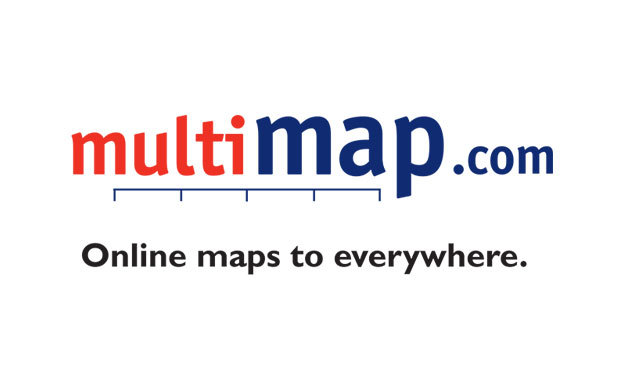Winner profile
Multimap
- Previous winner at the 2005 and 2006 UK Technology Fast 50 awards

Today it would be difficult to imagine a mobile phone without at least a few mapping and location-based apps. When Sean Phelan started Multimap in 1995, though, the idea of putting maps on mobile phones was viewed by some - including a few major handset providers - as absurd.
Sean had been a consultant working on mobile network licensing, and an avid sailor familiar with GPS and mapping technology. He saw potential in bringing the two together. “That was the vision that made me start the company,” he says.
But the networks and phones weren't quite ready for that vision. So Sean turned to the internet, and in 1996 launched Multimap.com's consumer website. “I’d missed the PC revolution,” he says. “And the web revolution felt like the same order of magnitude. I thought, ‘If I don’t jump at this now it will be too late.’”
Multimap was the first company to put maps from UK mapping agency Ordnance Survey online. Sean's original intention was to outsource the development of the mapping services, but he was told that what he wanted to do couldn’t be done, was too hard, would take too long, etc. So in the end he built the infrastructure himself, writing code and configuring mapping software and servers in the spare bedroom of the flat he shared with his partner, Audrey Mandela.
“Necessity was the mother of invention then," Sean says. This served us well along the way because the culture of company was always to use technology carefully, not to just throw money and hardware at problems.”
As the business started to take off, Audrey began to spend more of her time on Multimap, and invested some of the gains from the sale of her tech consulting employer into the company.
“The start-up environment was very different then," she says. "There were no angel networks, no accelerators. Office space and bandwidth weren't cheap, and there wasn’t the start-up culture we have today. It was harder to recruit team members for a new, untested business. These were the days of dial-up internet, with hardly any broadband; the computers themselves were also slow. Not an ideal environment for web-based maps."
Still, consumers and businesses saw the appeal, and both the public website and the provision of maps for others' websites took off. In 1998 Audrey quit her job to join Sean. Just as they started to look into external funding they received a call from Flextech (now part of Virgin Media), which wanted to integrate Multimap's maps into its interactive television services. In 1999 Flextech invested £1.87 million for 25% of the company.
The funds enabled Multimap to launch a significant consumer marketing campaign and to accelerate hiring. Multimap’s ad campaign won Ad of the Week in Campaign magazine after its first week on the street and is partially responsible for a close to 50% jump in the following month's traffic. Audrey says 20% of leads for B2B services that year were also generated directly by the ad campaign.
Although the dotcom crash of 2001 had an impact on ad sales on the consumer site, sales of business services were strong. By 2003 the company had more than 800 B2B customers, double the number in 2001. Corporate customers included Hilton, Yell, Ford, Avis, and almost all UK-based high street retailers. Multimap also continued to innovate, launching aerial and satellite imagery, storefinders, asset tracking services, travel directions and, at last, maps on mobile phones.
Multimap featured in the Deloitte Fast 50 in 2005 and 2006. In 2005 Sean was named Deloitte Fast 50 Entrepreneur of the Year for London and the Southeast. The company also received a Queen's Award for Innovation.
By 2007 location-based services was a hot area. But it was also getting increasingly competitive, and consolidating. Earlier in the year TomTom had acquired Tele Atlas, one of Multimap's key data suppliers. Then Nokia bought Navteq, another supplier, for £4bn. The Multimap board decided to seek a round of funding, for further expansion, to allow Flextech to exit, and to give employee option holders some liquidity. “Our goal had been to raise roughly £8m,” Sean recalls. “But then the offers started coming in…."
"Microsoft came to us asking if were interested in a substantial investment," says Phelan. "We knew it was code for ‘can we buy you?’. The Multimap board decided to change their fundraising into a two-track process, soliciting bids for either an investment or an acquisition. That led to three offers, and in October Multimap entered into “exclusive negotiations” with Microsoft. The deal was completed in December 2007, for a reported £50m.
At the time of the acquisition, Multimap was one of the world's leading providers of maps on the internet, serving more than 10 million unique users and 200 million page views per month on its consumer site and 1,200 business customers around the world. It had 120 employees in offices in the UK, Australia, and the US, as well as partners in Istanbul and Malaysia.